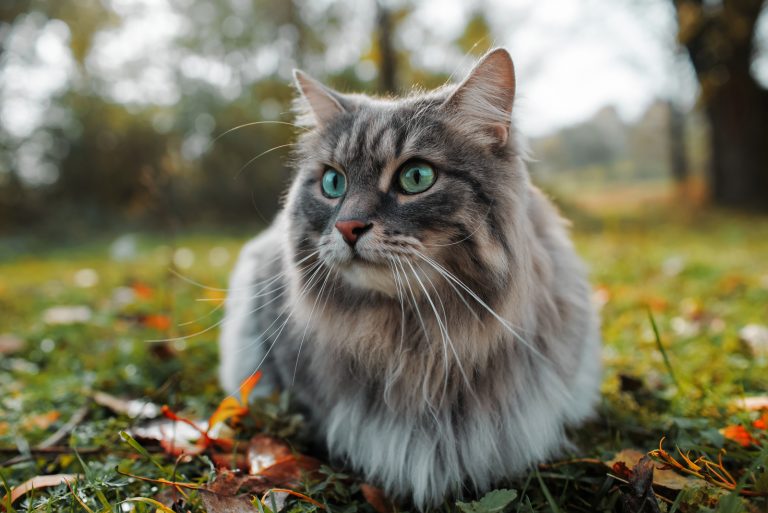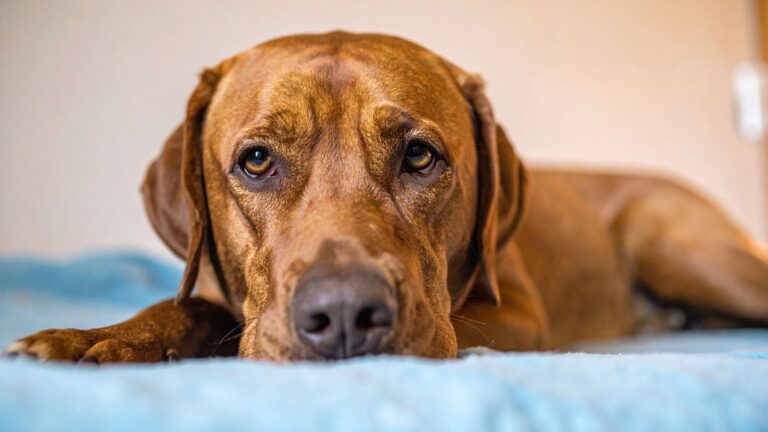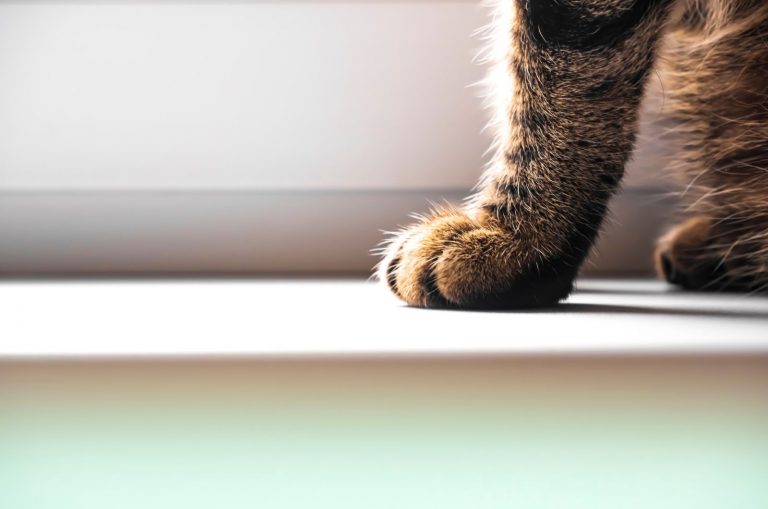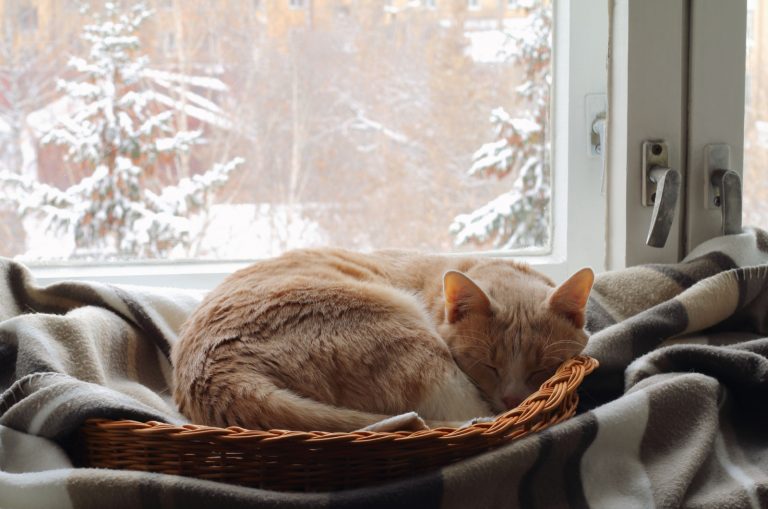Cat Poop Half Firm Half Soft: 5 Reasons And How To Help
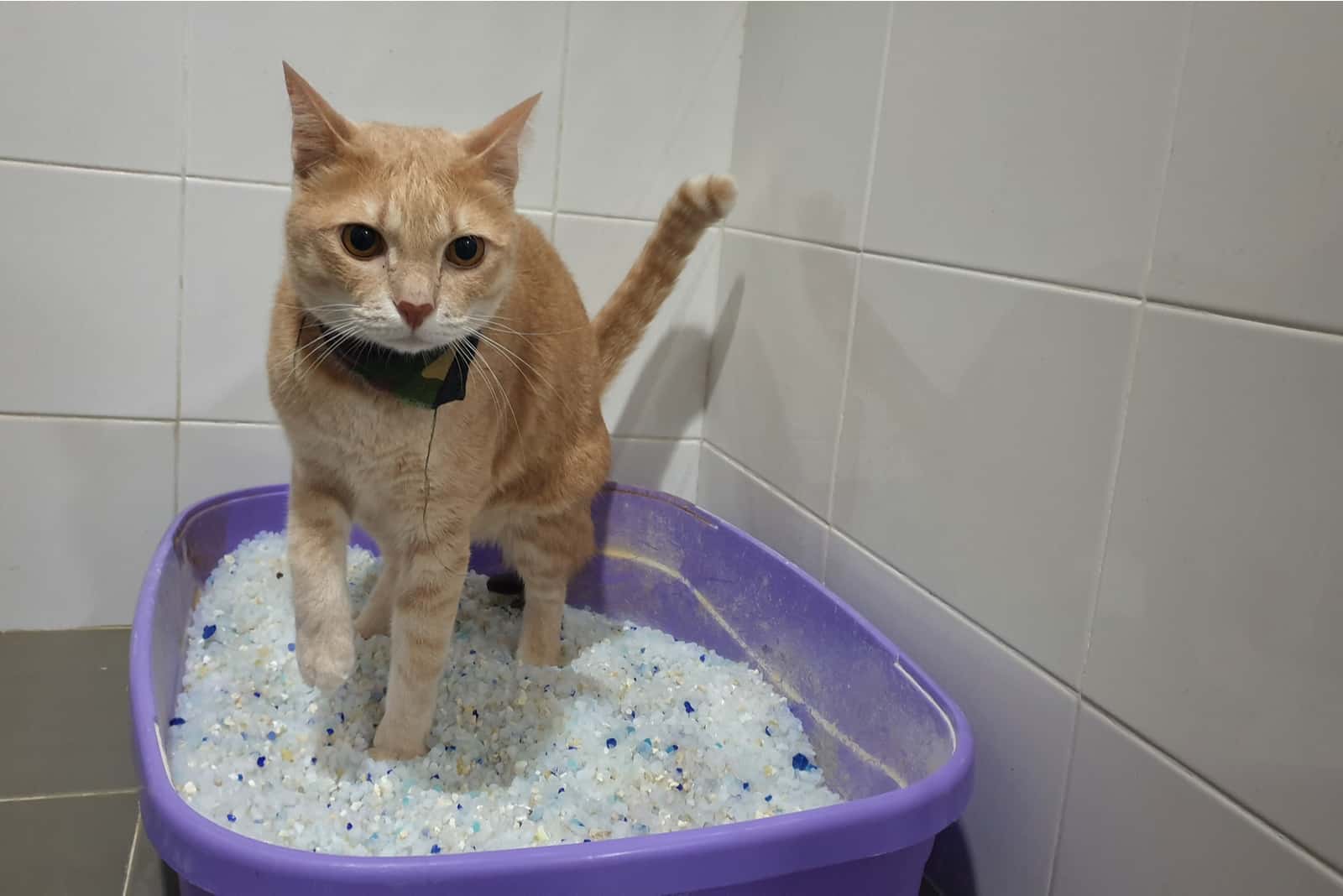
There are two reasons why you’re reading this, firstly you are a cat owner, and secondly, you want to know why is your cat poop half firm half soft.
There are a few possible causes for your cat’s poop being half firm, half soft. Diet changes, food allergies, intestinal parasites, gastrointestinal inflammations, bacterial infections, or some other underlying cause may cause changes to the appearance of your cat’s poop.
If you are seeking answers and advice, you’re in the right place! We will explain the most common reasons behind your cat’s half firm, half soft poop.
Just like you, I want what’s best for your beloved furry friend.
If your cat has unusual poop, they may also be showing some signs of a stomach ache and you are probably concerned for your cat’s overall health and want to help them in any way you can.
Cat’s poop is normally formed like dough and brown in color. Cats poop on average once a day, and the odor is almost always the same (not very strong).
To monitor your cat’s bowel habits, inspect the litter box. Problems with poo typically start when it becomes half firm, half soft. This is a sign that it’s time to call a vet.
This article provides you with the best possible solutions for your cat’s digestive issues. Read on and find out why is your cat poop half firm half soft, and what you can do to help.
5 Reasons: Cat Poop Half Firm Half Soft
If your cat’s poop is half firm, half soft, this is not considered normal. Normal poop is brown in color and its texture is consistently like playdough, or clay while it’s being modeled.
Your cat’s stool should not be too soft, nor too firm. It shouldn’t be half soft and half firm either. In the text below you will find common causes of problems which affect your cat’s stool, explanations, and helpful advice.
Common Causes
Most common causes for cat poop half firm half soft are: cat’s usual diet, cat’s new food, intestinal parasites or bacteria, gastrointestinal inflammation, and stress.
1. Cat’s Diet
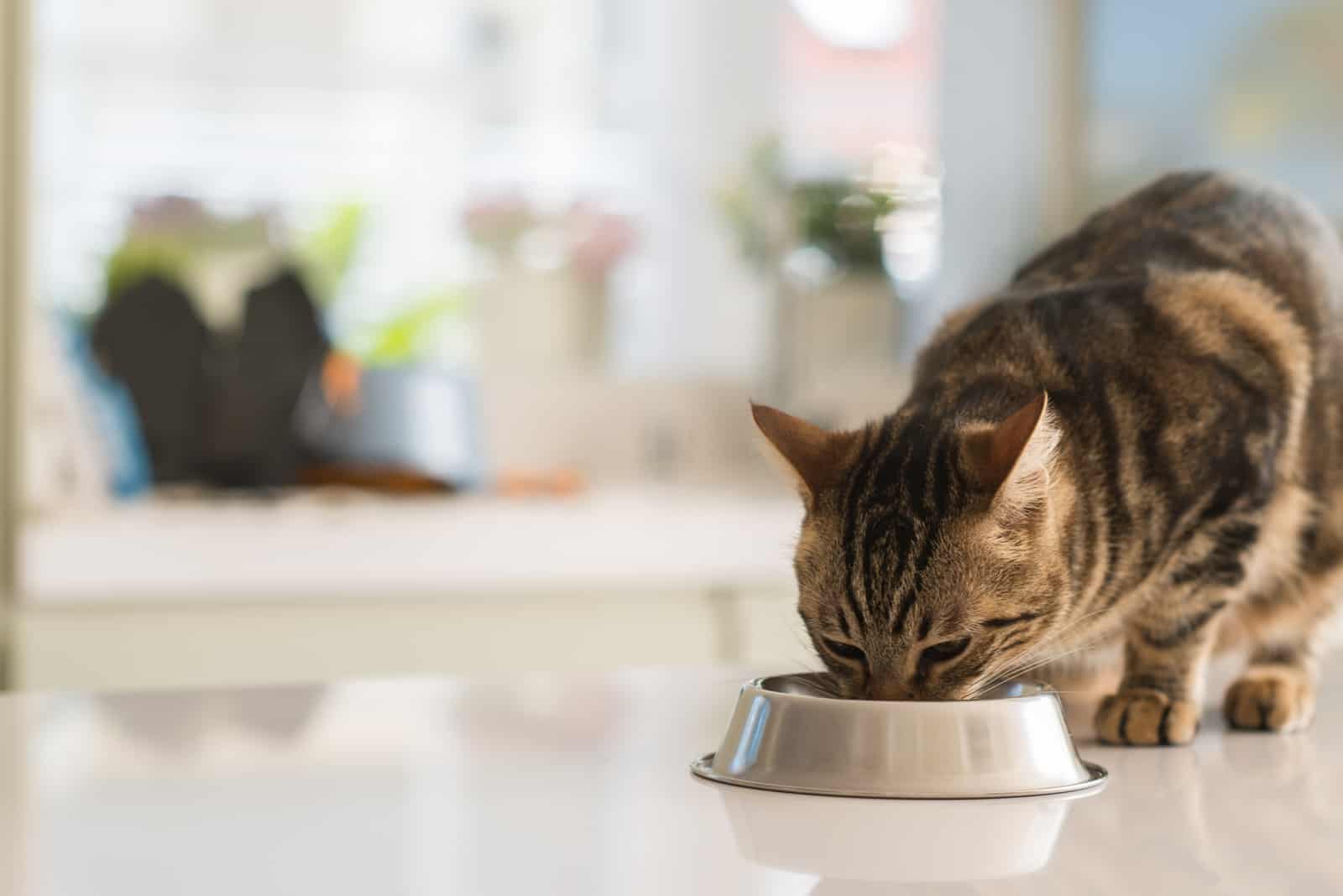
Cats, like humans, can develop food allergies over time. You might stop and reconsider their current diet, if you notice anything strange is happening.
Cat’s poo depends a lot on the food they are being fed. You should check if your cat’s dietary habits are causing them digestive issues.
A vet can give you advice on the best type of food for your cat’s individual needs.
2. New Food
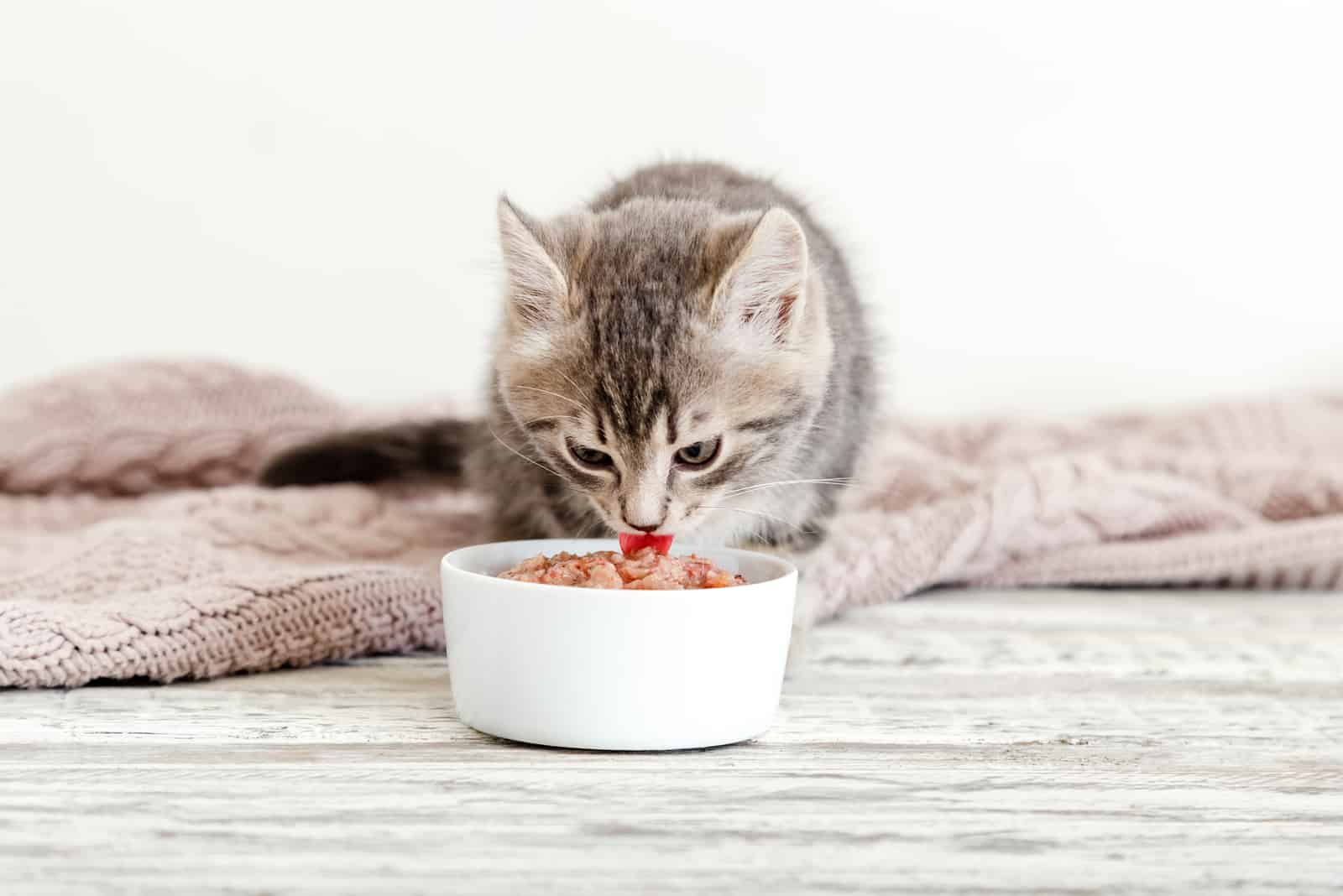
You are always required to give your cat fresh food. No matter whether you give them home-cooked meals or you buy everything, it has to be fresh.
You should try and buy quality food, but that is less important than the freshness of the food.
Whenever you are switching your cat from one food to another, introduce it gradually by mixing the new food with some of the old variety. It is easier for your cat to get used to a change in diet this way.
If you suspect that the new food is making your cat poop half firm half soft, then it is likely you didn’t follow the process of introducing new food to them gradually, and they may be simply getting used to the new food.
Allergies are another reason for changes in a cat’s poop when switching to a new food. It could be that your cat is allergic to an ingredient in the new food.
Check the ingredients for potential allergens and note any ingredients that your cat has not been exposed to before as a potential trigger for digestive issues.
Your cat might also just get an upset stomach from the change to a new food, but this should be temporary as they adjust.
Remember to also check the ingredients of any new treats, whether cat treats or human foods, even if your cat meows for them, they are not always a healthy choice.
In any case, you should talk to your vet and sort out with him which food is the best choice for your feline friend.
3. Intestinal Parasites
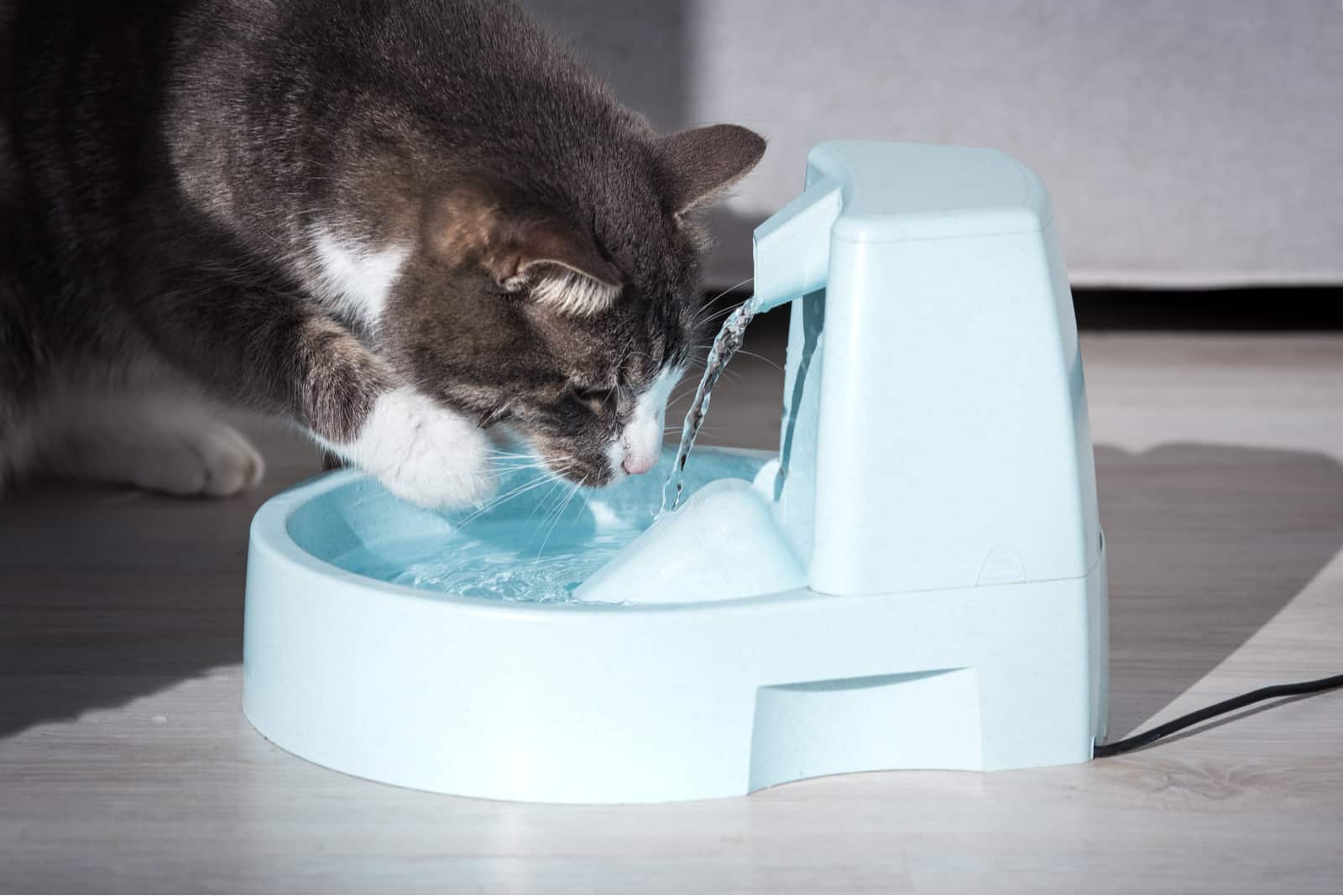
Sometimes, when your cat eats they can also ingest some bacteria which will stay in their intestines.
If you suspect an infection, talk to your vet about investigating the cause, or even taking some medication to get your cat’s poop back to normal.
Intestinal parasites are an issue for cats. Parasites can come from infested water. Cats drink water from many places outside.
When they drink water that has been contaminated, it can introduce parasites such as worms (roundworms, tapeworm, giardia) into the digestive tract.
Regular preventative deworming is very important. You should do this as part of your regular cat care regime. Your vet can also administer a deworming treatment if there is any evidence of worms.
There are different types of parasites that cause distress to your cat’s intestines and make your cat poop half firm, half soft.
The following are some of the most common parasites found in cats:
– Flukes
Flukes (trematodes) are a type of parasites that infect cats, but they are not that common.
– Hookworms
Cats sometimes don’t show any signs that these parasites have taken up residence inside their intestines. The cat’s poop can become loose and mushy, and your cat may lose its appetite and lose weight.
Your veterinarian will make a diagnosis based on looking at the feces through a microscope. Hookworms can be successfully treated using deworming medications.
– Roundworms
These are fairly commonly found in cats. There is a type of roundworm called Toxocara cati, which can infect people as well.
Roundworm eggs can be picked up from the feces of an infected cat, or ingested when cats eat mice that are infected.
Roundworm can also be transmitted from a cat to its kittens through breast milk. Adult cats have better bowel movements and can have some resistance to this infection.
However, when their immunity is compromised, the parasites spread more easily and more eggs appear in the feces.
Roundworms are sometimes even visible to the human eye, and may be seen within the infected cat’s poop or vomit.
Roundworms can also be treated with medications; diagnosis is again given by examination of the feces through a microscope.
Roundworms are quite common, and ideally you should treat a cat in its early stages, before your cat is 2 months old. Continue doing this regularly after your cat is older than 6 months.
People, especially children, can also get infected by worms, so make sure to keep your cat healthy and well.
– Tapeworms
Tapeworms do not usually cause severe damage or disease. Tapeworms are usually caught and reproduced when cats eat fleas.
This is one of the many reasons why you should always treat your cat and exterminate fleas.
In order to control tapeworms, you need to prevent fleas, and continue treating your cat for both fleas and worms.
Even if your cat is an inside cat and only eats purina, you still need to treat them for fleas because they are easily picked up.
If your cat goes outside of the house, remember that cats are predators and they will hunt and eat their prey. This means they are exposed to wild animals and so they can easily become infected.
Tapeworms can be cured by several different medications; your veterinarian will decide which one is best for your cat’s situation.
Sometimes your veterinarian will recommend a general deworming medication that will treat all kinds of worms without identifying the type of worm your cat is carrying. This is faster and less expensive than identifying the worm using a microscope.
Related: Should I Quarantine My Cat With Tapeworms? Find Out Now
4. Gastrointestinal Inflammation
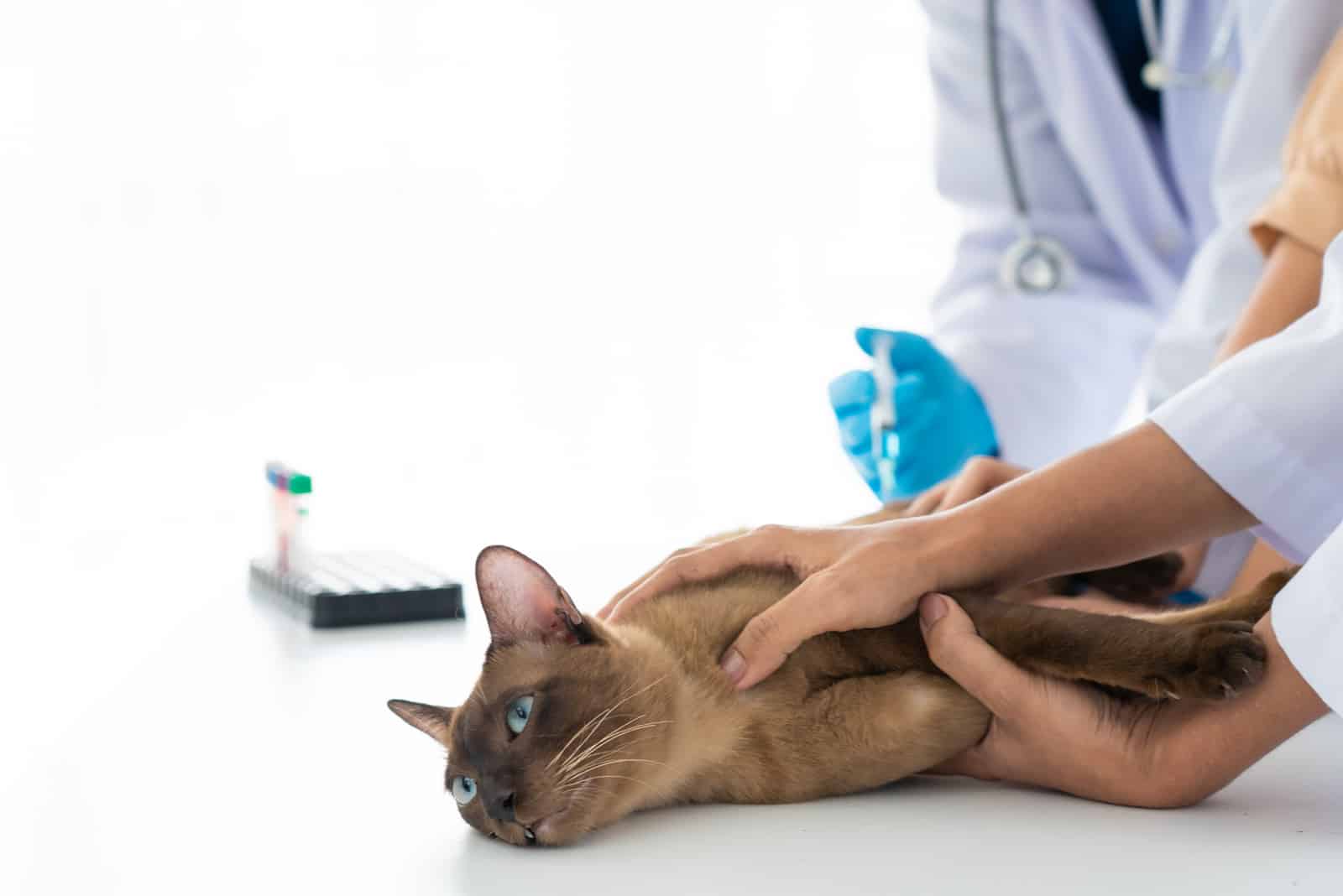
Gastrointestinal inflammation or inflammatory bowel disease is a condition in which your cat’s digestive tract becomes extremely inflamed and irritated.
This can be caused by food allergies, tumors, cancer, bacteria, parasites, or even stress.
Gastrointestinal inflammation makes it hard for the cat’s digestive tract to process and digest food normally, which causes your cat’s stool to appear different.
Other reasons your cat might have gastrointestinal inflammation are fur, hairballs, and other things your cat swallows that may be hard to digest.
You have to pay attention to what your cat eats, and what they might swallow by accident during playtime.
Your vet will likely prescribe a special diet for your cat if he suspects any food allergies, food intolerance, inflammatory bowel diseases (IBD), or colitis, is present. Deworming meds or a course of probiotics might also be an effective solution, depending on the specific diagnosis.
Veterinarians will sometimes take a stool sample to determine the main cause of your cat’s problem. Sometimes the causes of one disease can be similar to another, and they need to rule out the wrong one.
For example, hyperthyroidism is not usually associated with kidney disease, but if it is not discovered in time, hyperthyroidism can contribute to kidney problems and endanger your cat’s health.
5. Stress
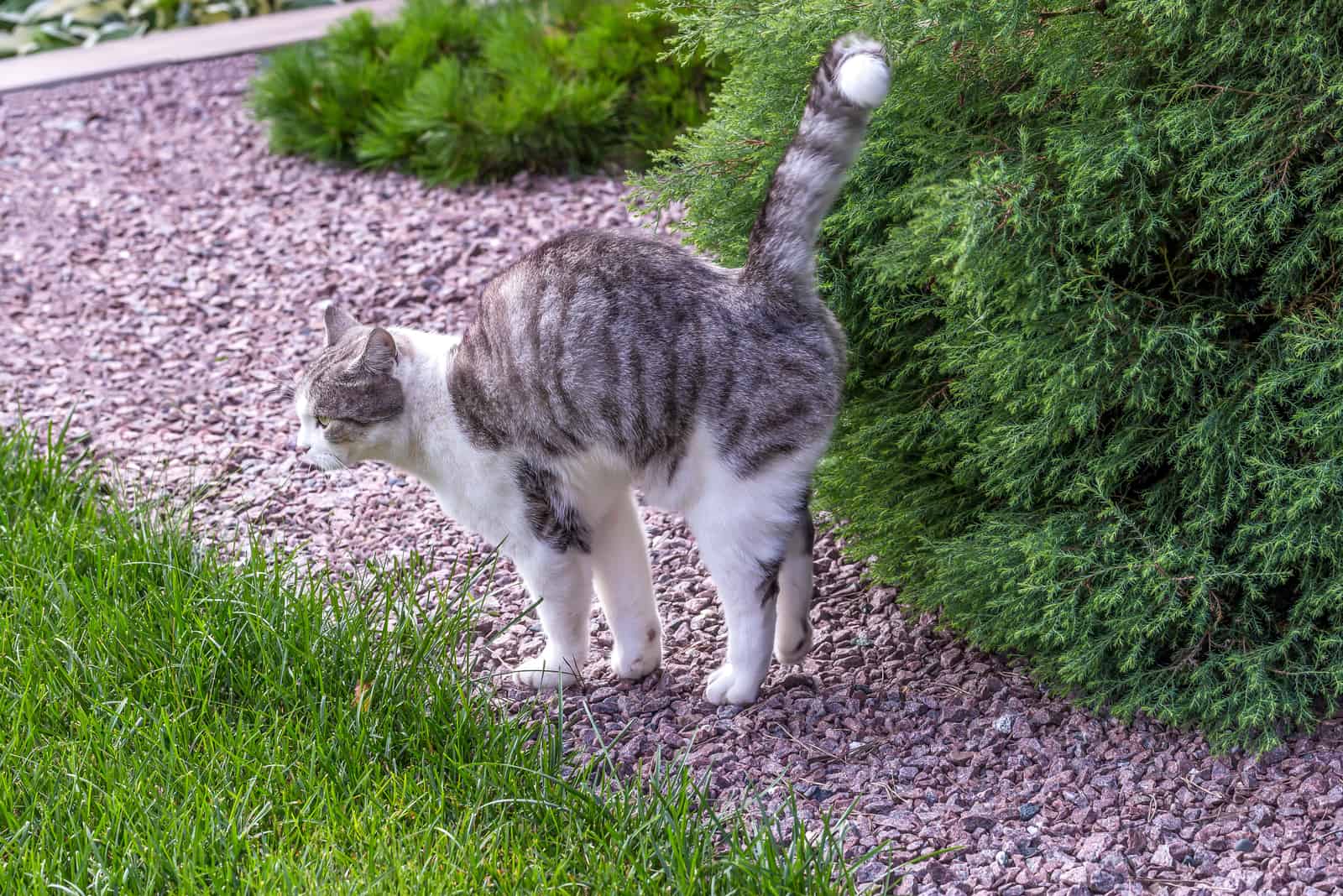
Stress? I know it sounds a bit weird but just like humans, cats feel stress in many situations. Just as stress affects our health, it can have a big impact on your cat’s health too.
If your cat has experienced any kind of stress, cat poop half firm half soft is not that unusual.
Possible reasons your cat is stressed might include moving to a new home, not spending enough time with your pet, the presence of other cats, home renovations, house guests, or changes outdoors that you might not even notice.
Introduce each new change gradually and slowly, take your time to show your cat that everything is ok. Your cat needs your company.
This might be the easiest problem to deal with. Spend time with them! Your cat needs playtime, and cuddles! A lot of cuddles!
Runny Poop – Is It Diarrhea?
Yes. Runny poop is neither firm or soft, it is as the word says runny, like water.
Diarrhoea or watery stool usually lasts for more than two days, and the poop consistency will be entirely liquid, not firm at all.
Diarrhoea is the opposite of constipation. Constipation is when your cat is unable to poop, when there is a blockage or the poop has become dry and cannot move through the bowel.
If your cat eats too much dry food and their water intake is low, they are likely to get constipated.
Diarrhoea can have similar causes as when your cat has half firm half soft poop, however, in case of diarrhoea, the poop texture will be completely watery.
You should know that cats having soft stool is quite common, however if it lasts for more than 2 days it can turn into diarrhoea and this means you need to contact the vet.
Suggested: Importance Of Cat Poop Color Chart – Understanding Felines
Q & A
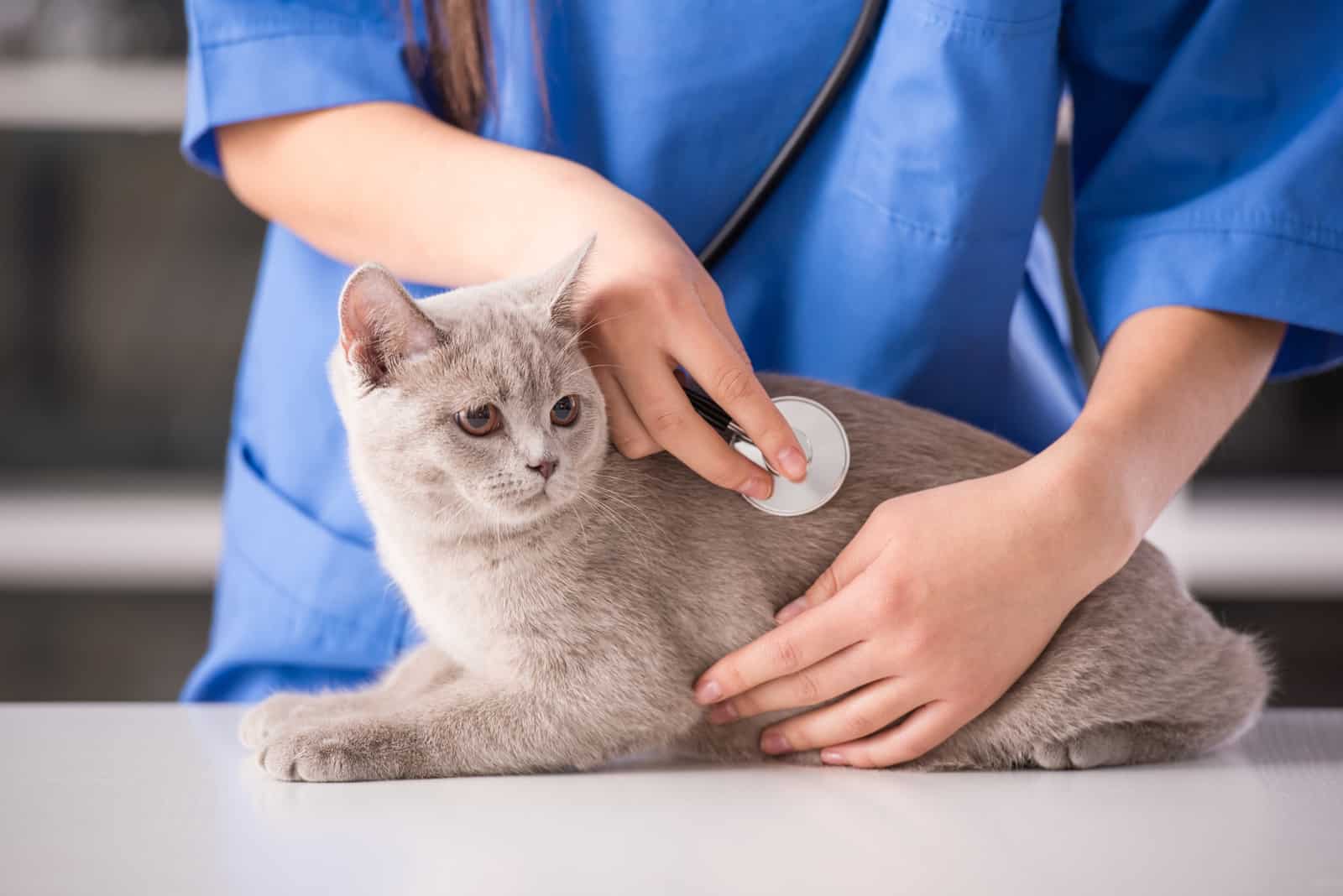
How can I make my cat’s stool firmer?
Check with your vet for tailored advice. You may be able to add a small amount (2g) of metamucil (fiber supplement) to your cat’s food, maybe 1 or 2 times a day, for a week.
Should my cat’s poop be soft?
No. It should be somewhere between soft and firm, not too soft and not too hard.
Does wet food make cats poop soft?
No, even though wet food is quite watery, it should not directly cause a cat’s stool to be soft.
When is the best time to call a vet?
After 48 hours. If your cat’s stool is not normal after 48 hours of you noticing a change, it is best to call a vet.
What does cat poop have to do with my cat’s health?
Poop says a lot about your cat’s health. Most diseases will impact your cat’s stool in some way. For example, a common symptom of inflammatory bowel disease is blood in cat’s stool. Another example would be white cat poop as a sign of roundworm infection.
What is the texture of cat poop?
Healthy cat poop should be somewhere between soft and firm. The texture of your cat’s poo should be like clay while modeling.
What do you feed a cat with loose stools?
You can feed your cat something homemade. Boiled meat (preferably chicken) and cooked white rice are easily digested.
Finally…
Why is cat poop half firm half soft? I have mentioned the most common reasons and how to help solve the issues…
Your cat poop is usually half firm half soft because of food, parasites, inflammation, bacteria, or stress. Whatever the reason might be, if the abnormality in your cat’s poop continues for more than 48 hours, always take your pet to a vet.
In order to avoid any health issues, always contact a veterinarian for any concerns and take your cat for frequent checkups.
Most health issues can be easily solved when you take proper care of your furry friend and don’t delay in treating problems as they arise.
Related Articles:
How Often To Cats Poop? Investigating Kitten Poo Problems

